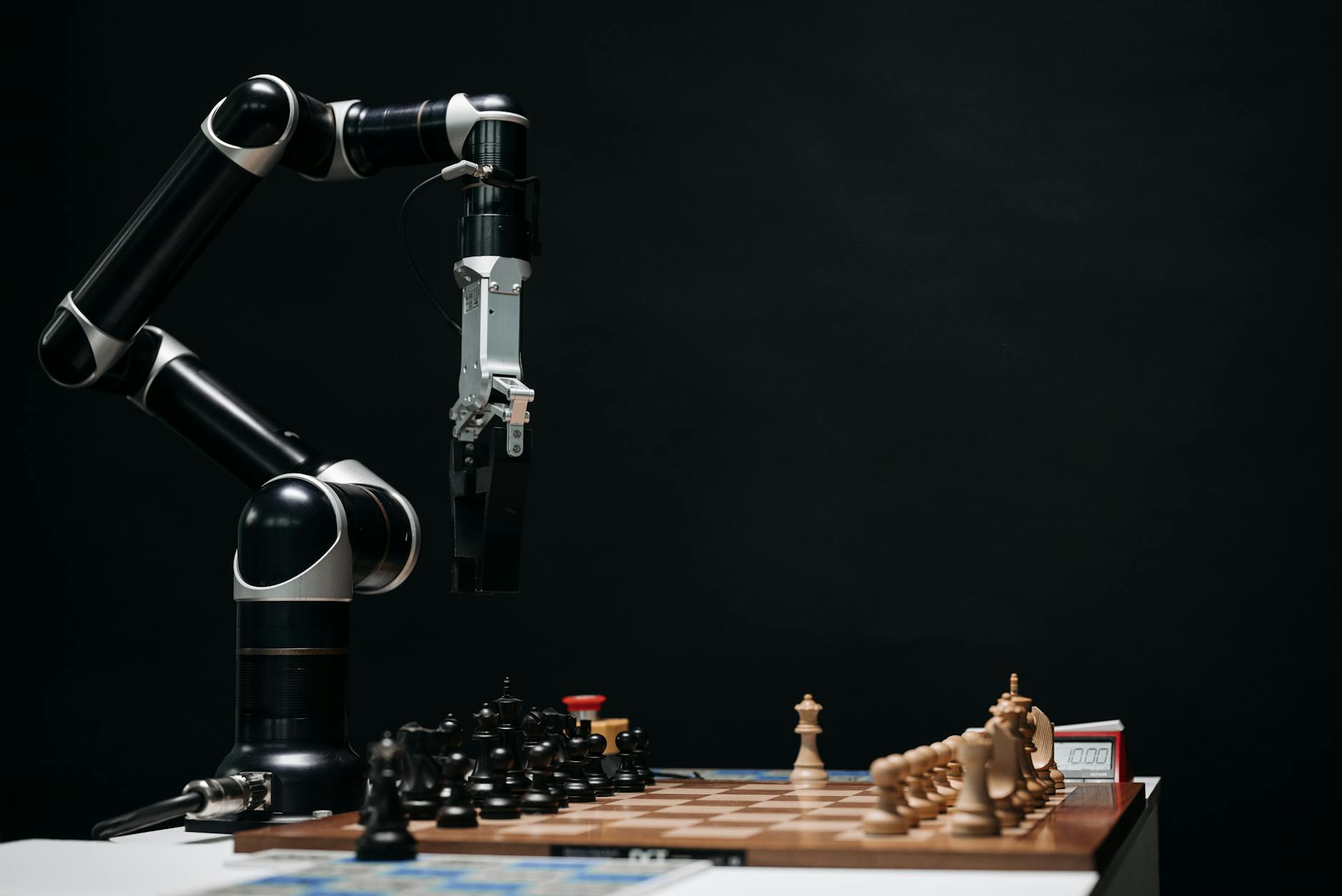Step into the world of AI and witness the rise of the machines that are revolutionizing industries and shaping our future.
Table of Contents
- Introduction to AI
- Historical Context of AI
- Current Applications of AI
- Benefits of AI
- Challenges and Ethical Concerns in AI
- Future Directions of AI
- Can Skynet Happen? Exploring the Possibility
- Can AI Achieve Sentience?
- The Role of AI in Solving Global Challenges
- Conclusion: Embracing the Potential of AI
Welcome to our daily blog journey exploring the fascinating world of Artificial Intelligence (AI). In this series, we will delve into the intricacies of AI, its historical context, current applications, benefits, challenges, ethical concerns, future directions, and even delve into the intriguing question of whether a scenario like Skynet from the Terminator franchise could become a reality. Join us as we unravel the mysteries and potentials of AI and its impact on our modern world.
Introduction to AI
Artificial Intelligence, commonly known as AI, is a branch of computer science dedicated to creating intelligent machines that can simulate human cognitive processes. From algorithms to machine learning, AI aims to teach machines how to “think” and make decisions autonomously. There are different types of AI, with narrow AI focusing on specific tasks and general AI having the potential to perform a wide range of activities.
Historical Context of AI
The roots of AI can be traced back to the 1950s when the term was first coined by computer scientist John McCarthy. Throughout the following decades, AI saw significant developments, including the creation of the first AI program, the advent of neural networks, and the introduction of expert systems. These milestones paved the way for the modern AI technologies we see today.
Current Applications of AI
AI is making waves across various industries, from healthcare to finance to transportation. In healthcare, AI is being used to diagnose diseases and predict patient outcomes. In finance, AI algorithms analyze market trends and manage investment portfolios. In transportation, AI powers self-driving cars and optimizes traffic flow. The possibilities are endless.
Benefits of AI
The incorporation of AI into everyday processes brings numerous benefits. AI can streamline operations, enhance efficiency, and save time and resources. By automating tasks and providing valuable insights through data analysis, AI is revolutionizing industries and driving innovation to new heights.
Challenges and Ethical Concerns in AI
While AI offers tremendous potential, it also poses challenges and ethical concerns. Issues such as algorithm bias, data privacy, and the impact of AI on the workforce need to be addressed. Ensuring that AI technologies are developed and used ethically is crucial to harnessing their benefits while mitigating risks.
Future Directions of AI
The future of AI holds exciting possibilities. Advancements in AI algorithms, robotics, and data analytics are set to propel the technology forward. AI is expected to continue transforming industries, shaping the way we work and live, and opening up new opportunities for innovation and growth.
| Chapter | Topic | Description |
|---|---|---|
| 1 | Introduction | An overview of AI and its history |
| 2 | Machine Learning | Exploring the basics of machine learning algorithms |
| 3 | Deep Learning | Understanding neural networks and deep learning models |
| 4 | AI Applications | Real-world examples of AI in use today |
| 5 | Ethical Considerations | Discussing the ethical implications of AI technology |
Can Skynet Happen? Exploring the Possibility
The concept of a self-aware AI system like Skynet, as depicted in the Terminator franchise, raises intriguing questions about the limits of AI development. While a scenario like Skynet is currently considered highly unlikely, it prompts discussions about the ethical and safety measures necessary to prevent any potential risks associated with advancing AI technologies.
Can AI Achieve Sentience?
The notion of AI achieving consciousness and developing sentience is a topic of philosophical debate. While AI systems can perform complex tasks and exhibit human-like behavior, true consciousness remains a distant possibility. However, the implications of sentient AI raise ethical considerations that must be carefully examined to ensure responsible AI development.
The Role of AI in Solving Global Challenges
AI has the potential to address significant global challenges, from climate change to healthcare disparities. By harnessing the power of AI for predictive modeling, data analysis, and decision-making, we can leverage its capabilities to create innovative solutions that can drive positive change and bring about a better future for humanity.
Conclusion: Embracing the Potential of AI
As we journey through the realm of AI, it becomes evident that the rise of artificial intelligence is transforming our world in profound ways. From enhancing productivity and efficiency to addressing complex challenges, AI offers a vast array of opportunities for growth and progress. By staying informed and engaged in the evolving landscape of AI, we can collectively shape a future where intelligent machines coexist harmoniously with humanity.
FAQs
What are some real-world examples of AI applications?
Some real-world examples of AI applications include virtual assistants like Siri and Alexa, self-driving cars from companies like Tesla, AI-powered recommendation systems on platforms like Netflix and Spotify, and AI-driven healthcare diagnostics tools.
Can AI achieve true sentience?
While AI can mimic human behavior and perform complex tasks, achieving true sentience like human consciousness remains a distant possibility due to the limitations of current technology and understanding of consciousness.
What are the ethical concerns surrounding AI?
Ethical concerns related to AI include algorithm bias, data privacy issues, potential job displacement due to automation, and the need for responsible AI development to ensure fair and ethical use of AI technologies.
How can AI help solve global challenges?
AI can help solve global challenges by providing insights through data analysis, predicting outcomes through predictive modeling, and aiding decision-making processes in areas such as climate change, healthcare disparities, and disaster response, leading to innovative solutions for a better future.


Recent Comments